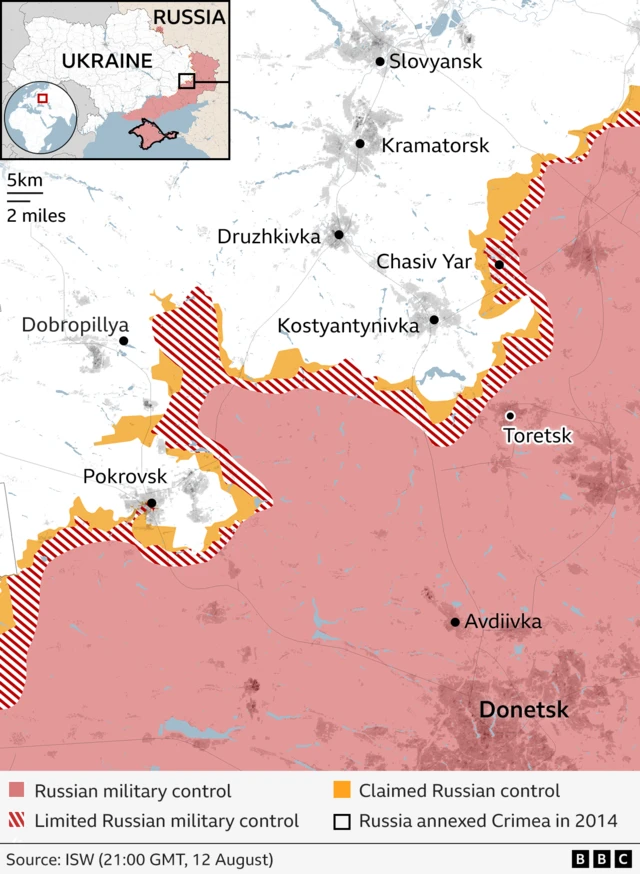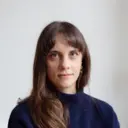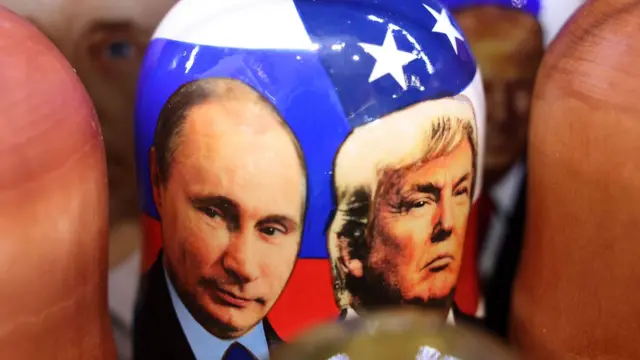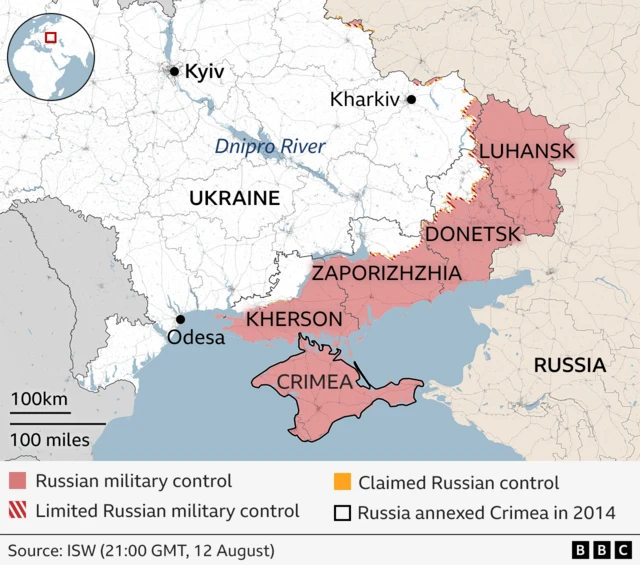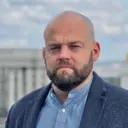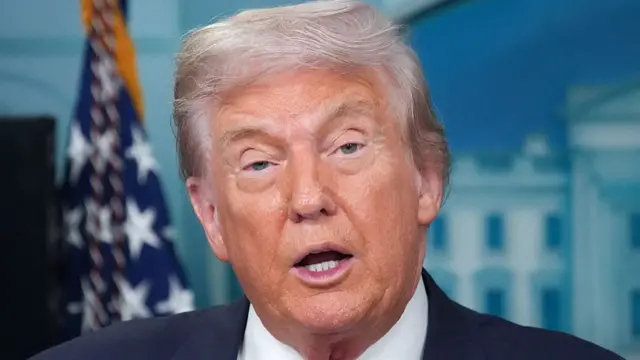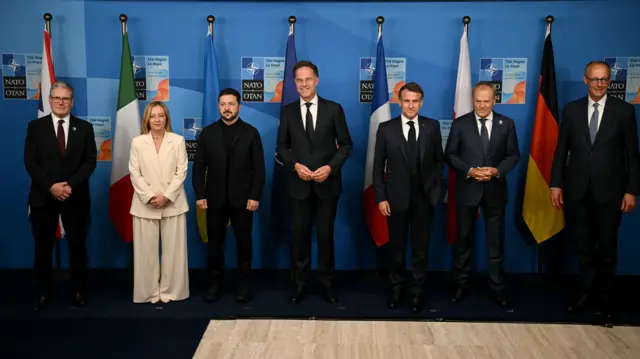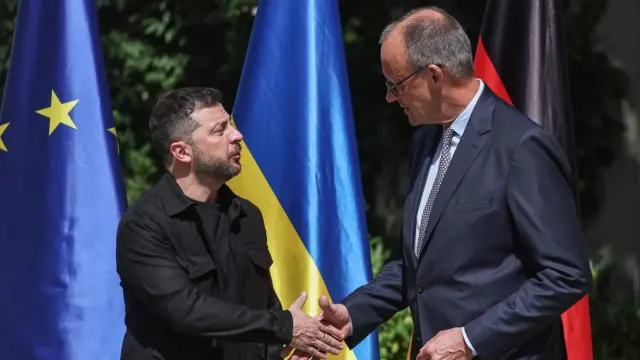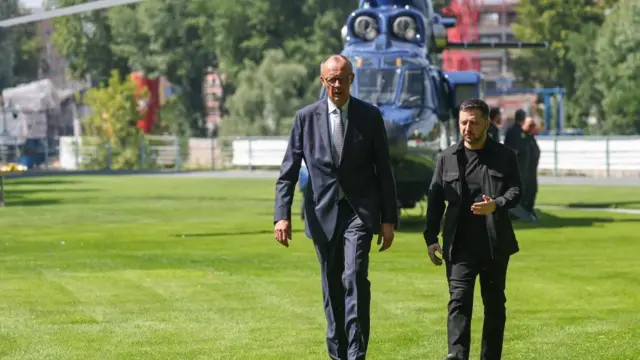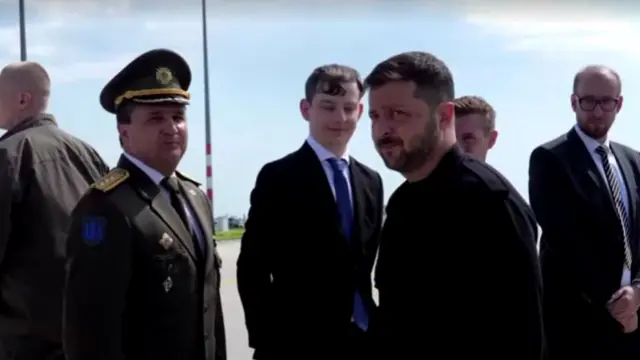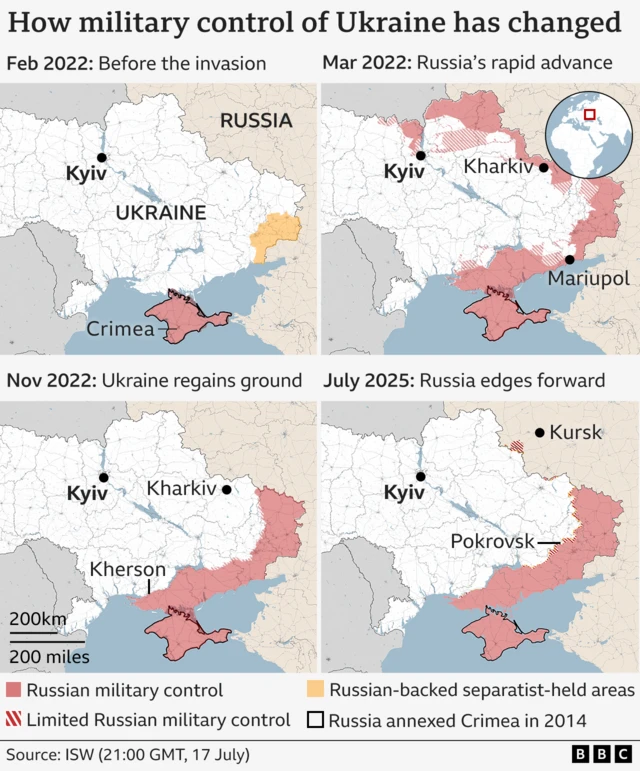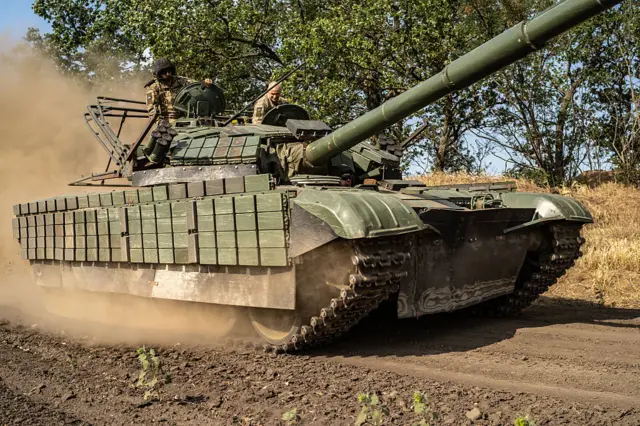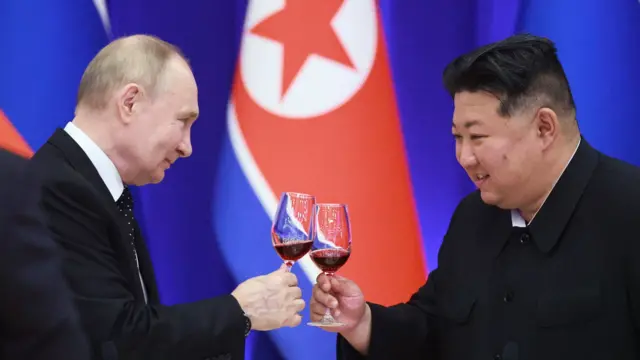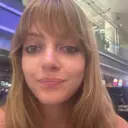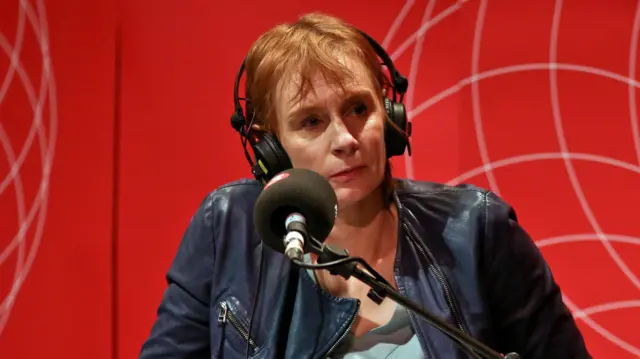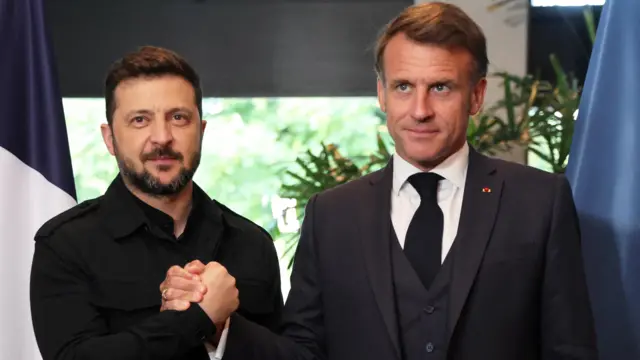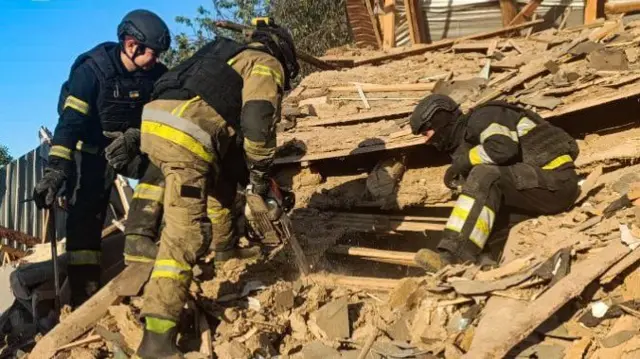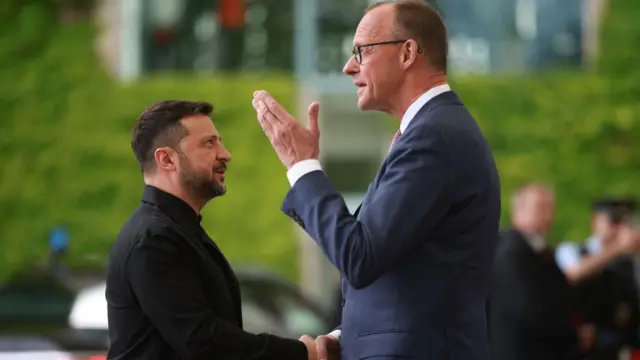What's the latest on the front line?published at 13:36 BST 13 August
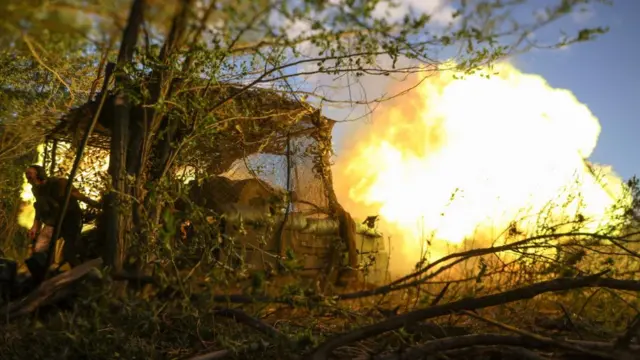 Image source, Reuters
Image source, ReutersA Ukrainian soldier fires a howitzer in the Donetsk region
As we focus on the diplomatic efforts to resolve the war, there have been some significant developments on the front line in Ukraine.
According to Ukrainian officials, Russian forces have advanced at least 10km (six miles) around the Pokrovsk area in a few days, after weeks of incremental gains along the front line.
Reconnaissance and sabotage groups of Russian troops have been reported by the Ukrainian military as having entered small settlements around Dobropillya (20km north-west of Pokrovsk), analysis from the Institute for the Study of War (ISW) think tank says.
Operating in small, unarmoured teams they have been infiltrating areas behind Ukrainian defensive positions, taking shelter and awaiting reinforcements to carry out attacks. But they have not yet been able to deploy these reinforcements to exploit the gains, according to ISW reports.
At this point in the war, the town of Pokrovsk is considered one of the most dangerous places on the front line.
Ukrainian intelligence also indicates that North Korea recently deployed 11,000 soldiers to Russia to help the war effort, the ISW says.
